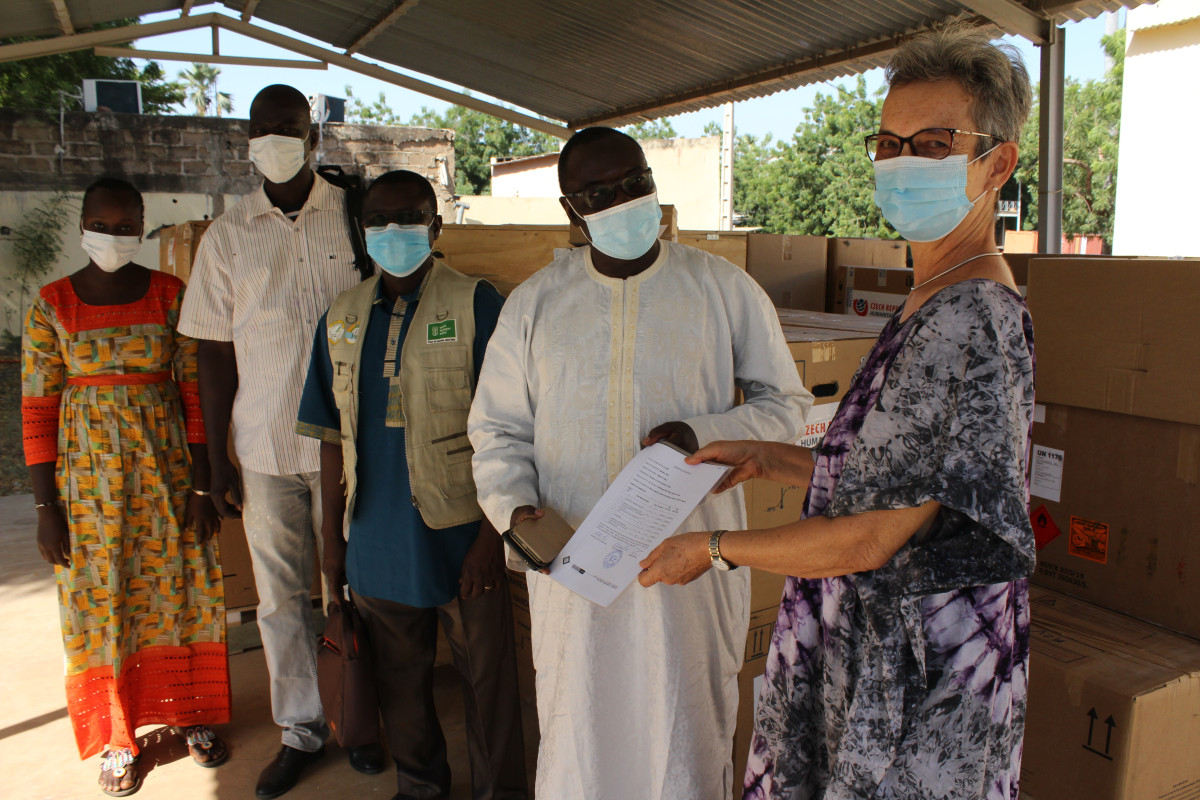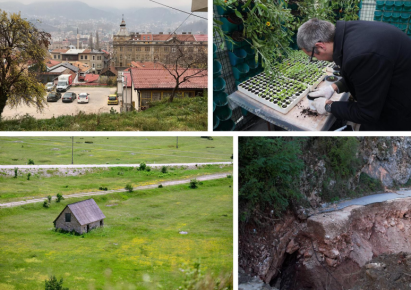Helping Mali tackle COVID-19
Published: Nov 17, 2020 Reading time: 6 minutes Share: Share an articleThe COVID-19 pandemic reached Mali in March 2020, exacerbating an already precarious situation caused by internal armed conflicts and climate change. With one-third of the country (6.8 million people) currently in need of humanitarian aid, and more than 287,000 people newly displaced, the pandemic poses a major challenge for Mali’s fragile healthcare system.

According to the United Nations Office for the Coordination of Humanitarian Affairs, Mali has recorded 2,773 cases of COVID-19 and 126 deaths as a result of the disease. But while 39,175 tests have been performed since the start of the epidemic, a lack of testing kits, limited testing sites, and therefore samples needing to be transported long distances to laboratories means the number of positive cases is expected to be far higher.
In Mali, the pandemic has affected not just access to healthcare, but also impacted on food security in rural areas as access to markets was dramatically reduced. People in Need (PIN) and its Alliance2015 partner, Welthungerhilfe (WHH) along with our 2 national non-governmental organizations partners ADR and Stop Sahel, immediately reallocated funds from within the ongoing Czech (through the Ministry of Foreign Affairs of the Czech Republic) and German (through Federal Ministry for Economic Cooperation and Development) governments resilience program, to support a community based response to the pandemic.
COVID-19 prevention and awareness raising
The initial focus of the immediate intervention was on prevention and awareness raising. "We distributed hand washing kits, soap, masks, and bleach or hydroalcoholic gels to communities, and raised awareness through trainings and printed materials, at the same time we were developing and negotiating the health system response," explains Richard Walker, PIN’s Regional Director for Africa.
Diégui Dembélé, 55, lives in Diongaga village in the Kayes Region. Diongaga is made up of approximately 1,000 families and includes more than 7,000 inhabitants. The resilience project has been supporting Diongaga with creating a market garden. Vulnerable vegetable producers are receiving seeds for plants such as tomatoes, okra, sweet peppers, and chili peppers, in addition to hand tools such as hoes, watering cans, and buckets.
Dembélé is a market gardener and the president of a local association of young farmers. He notes: "We received hygiene kits, soap, bleach, masks, and leaflets. This equipment really helped us protect ourselves against the COVID-19 pandemic."
Meanwhile, awareness sessions were conducted after distribution of the protective materials so that people would know how to employ them in the fight against COVID-19. "The sessions focused on respect for social distancing, frequent hand washing with soap, permanent wearing of masks, and other topics. The new knowledge I gained from the project taught me how to protect myself against COVID-19 and to raise awareness among other members of the community," says Dembélé. Unfortunately, there was not enough protective material for everyone. "My income does not allow me to purchase the materials which were provided to us,” he says. “I sincerely hope that this support will be repeated during this difficult period."
"We will continue to implement awareness raising in communities, and on the provision of water, sanitation, and hygiene equipment for community and district health centres where possible. Both the Czech and German governments have continued to show their commitment to supporting Mali in responding to health and hygiene issues along with water, food security and livelihood challenges for which we are very grateful,” says Walker.
Support for the Kayes Region’s health system
At the same time as the community program was underway, the Ministry of Foreign Affairs of the Czech Republic rapidly made available additional funds to support the strengthening of the health system in the region. PIN, WHH along with the Mali ministry of health and with exceptional support from the Czech Embassy in Mali designed the project with the objective to supply as quickly as possible, medical material and equipment, not available in the country, to the main hospital and to ensure the protection of the front line medical staff combating the epidemic.
Due to the large number of travellers that pass through the region, the current poor security situation, ill-equipped health facilities (leading people stay at home rather than risk long journeys with limited treatment options), and limited capacity for detection (for example, there is no laboratory in the region that can diagnose COVID-19) the risk of the spread of COVID-19 was and is particularly concerning.
Kayes city is home to the regional state hospital, which is the area’s only approved site for COVID-19 treatment. “As the health structures are not well equipped to receive ill people, the Kayes regional health system urgently needed diagnostic, treatment, and other medical equipment to ensure that case identification and management is effective, along with a strengthened capacity for health promotion and community sensitisation,” says Walker. “Hospital staff and health workers globally are at high risk as they come into contact more frequently with acute cases, and they are therefore extremely exposed to both infection and transmission due to a severe lack of personal protective equipment.”
According to director of Kayes regional hospital, the hospital, which is serving the population of almost 3 million, was not equipped with enough basic equipment for intensive care. This is not only a serious complication in times of COVID-19 outbreak but concerns patients exposed to other endemic infectious diseases and respiratory infections. All serious cases, which often take hours to transfer from rural areas of Kayes region to the central hospital, are then further referred to the capital city Bamako, which involves a further 10-15 hours of complicated transport by ambulance.
As part of the health system response, PIN and WHH supplied medical machinery and consumables along with personal protective equipment to the regional hospital in Kayes, which will also support the four district health centres. “With all the equipment now delivered, we are continuing communication activities in order to sensitise the rural populations and encourage early presentation of potential cases to the medical facilities,” concludes Walker.
As the previous activities of the joint resilience project focused on development of the irrigation infrastructure in the region, the projects activities were slightly adapted and the donors agreed to support Water, Sanitation and Hygiene in the local health facilities, which were exposed to COVID-19 and faced problems with infrastructure. This was also the case of the Diema district CSRF (Centre de Santé de Référance), which lacked stable access to water. This was achieved in the joint intervention of PIN and WHH, where a renovated borehole and water conduct had been planned, assisting the population of roughly 250 000.
Mali has a total population of 20.5 million, with approximately 5.2 million people are expected to be directly affected by the COVID-19 crisis. Refugees and internally displaced people are at heightened risk, as are people in areas where health facilities have closed due to security instability. As a result of insufficient health care capacities, particularly in unstable areas, Mali was declared a priority region by the COVID-19 Humanitarian Response Plan 2020, issued by the World Health Organisation.




